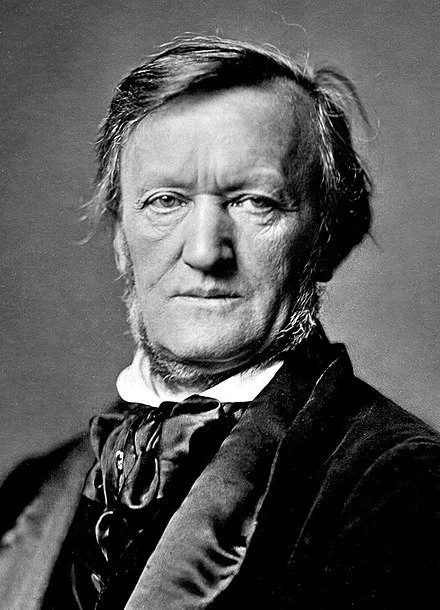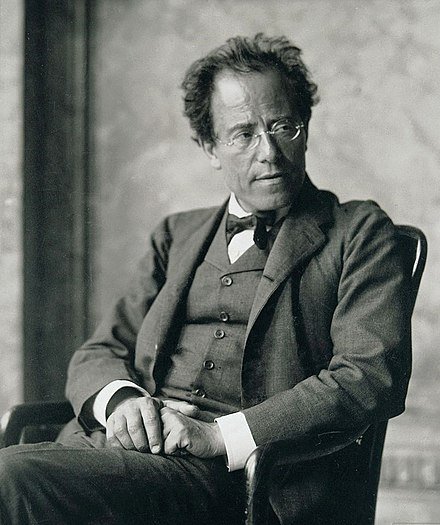THE TROUBLE WITH WAGNER
Guest essay by David Perry
I have a confession to make. I love the music of the Anti- Semite, Richard Wagner. Perhaps in this context I should adopt the Alcoholics Anonymous idiom “My name is David Perry, Woolf Institute writer in Residence and I’m a Wagner lover…” [Whoops of supportive applause].
The power and beauty of his music is breath-taking, but it can also be a bit much. The morning after a performance of TRISTAN or one of the RING CYCLE operas, I can feel something analogous to a bad hangover. Putting aside for a moment his overheated emotionalism, the charge sheet against Wagner could be divided into three sections:
His anti-Semitic views as expressed in pamphlets, letters and well documented comment.
Verdict: Guilty as charged. The “spirit of the age” argument won’t wash, he went way beyond that.
Some of his characters in THE RING are negative Jewish stereotypes. The philosopher Theodor Adorno made this argument, citing the distorted music and muttering speech of the dwarves Alberich and Mime. Other critics disagree, pointing to the origins of these characters in Nordic myth. Verdict: Unproven. But knowing what we do about Wagner’s views, Adorno’s argument is disturbingly persuasive. For me another piece of “evidence for the prosecution” is that one of Wagner’s main interpreters in the C20th was the conductor Herbert Von Karajan, a committed Nazi party member back in the day, who as far as I’m aware never apologised for his stance.
As for his overheated emotionalism, the charge is that Wagner’s insistence that “you, the audience must feel this” verges on the totalitarian.
Verdict: Maybe.
However this is a difficult charge to make against any piece of music, music being so profound and mysterious in its impact. Is there such a thing as self-doubting or sceptical music? I can only compare Wagner’s music with that of Gustav Mahler, born about forty years later, whose work has a similar majestic power.
But Mahler often follows the major key climaxes in his symphonies with a series of descending notes which decay and then dissolve into ominous brooding silence. It’s unsettling. And then there’s the ending of his Symphony No. 9 where shards of melody in the cello section alternate with shards of silence until silence finally takes over. Wagner could never have written anything like that.
When it comes to Wagner’s anti-Semitism, the philosopher Nietzsche is often mentioned. He was a great admirer of Wagner and a close friend, but it was precisely over this issue that they fell out. Nietzsche is on record as saying that although he thought most Germans were a bit dumb, the ones he generally liked best were the Jews. Nietzsche’s work was hideously butchered and Nazified after his death by his sister Elisabeth and as a result he has been much maligned. His championing of the harsher human emotions: determination, pride, aggression, was engendered by his dislike of Christian ethics and their call for submission to suffering and humility. This view of Nietzsche’s may be lacking in a basic sort of common-sense empathy, but could in no way be called anti-Semitic. The great English literary critic William Empson made a similar argument in his book MILTON’S GOD where he implied that the poet John Milton too, found the precepts of Christianity distastefully masochistic.
Ironically it is just these sorts of Christian sentiments that Wagner appears to embrace in his final opera, PARSIFAL. Taking the idea of submission even further, he was working on sketches for an operatic treatment of the Hindu epic the MAHABHARATA when he died in Venice. There is too little to tell, but it’s intriguing to speculate on how he might have developed the work.
Final thought: the best RING CYCLE I have heard in recent years was conducted at the Proms in 2013 by Daniel Barenboim, who was also the first Jewish conductor to be invited to Bayreuth. Barenboim co- founder with Edward Said of East West Divan Orchestra comprising Palestinian and Israeli has done much to try and bring the two communities together. He recently had to stand down from conducting due to developing neurological problems. How we shall miss him especially considering what is happening in Israel now.
David Perry
If you have an idea for a guest essay for THE CAMBRIDGE CRITIQUE please get in touch via
mike@thecambridgecritique.com







